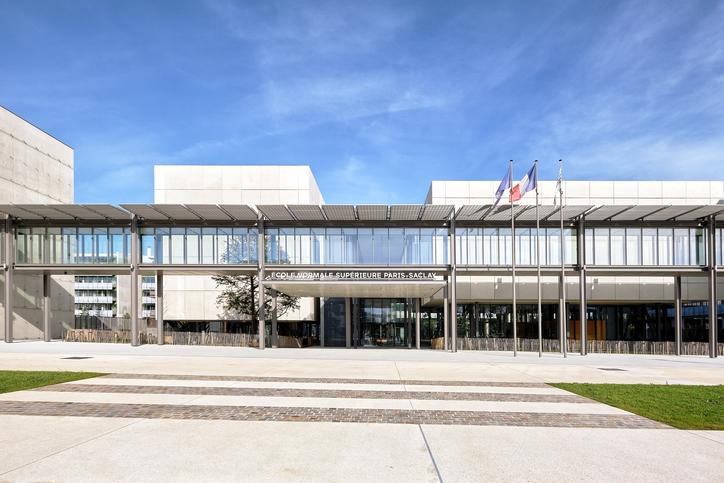
Shanghai ranking 2025: an international recognition of French research
Four universities in the Top 100, with one in the world’s Top 20, and eight institutions in the Top 200. A total 27 institutions ranked in the 100 best in the world, two more than in 2024. An 11th position in the world and first in Europe. These are the results for France in the Shanghai ranking 2025, the most expected benchmark ranking. Such results show an international recognition of French research.
Since 2003, the Chinese Jiao Tong University releases each year its Academic Ranking of World Universities, which aims at assessing the commitment and work of higher education institutions in terms of research. Out of 2,500 institutions, the ranking ranks the 1,000 main universities in the world using criteria in relation with the quality and reputation of research. Metrics of the ranking mostly focus on the number of Nobel prizes and Fields medals among alumni and teachers-researchers of an institution, most quoted researchers or number of publications in famous scientific reviews.
A 20-years leap
In a message posted on X, Elizabeth Borne, State minister, minister for Education, Higher Education and research, said she thought the results obtained this year by France in the Shanghai ranking is “an international recognition of the excellence of our research”. These results also confirm “the efficiency of our university policy, which led France to strengthen its scientific position on the world scene”.
According to the French Ministry of Higher Education, for a broader comment on these results in a press release, the Shanghai ranking also shows “the effectiveness and relevance of the university consolidation policy pursued for more than a decade”, namely dedicated funding and legal facilitation of institutional mergers, and a comprehensive policy of supporting “site projects” that has led the number of ranked institutions to increase from 18 in 2003 to 27 today, representing a 50% increase in 20 years.
Eight universities in the Top 200
In 2025, in addition to the University of Paris-Saclay, which kept its position of French leader with a 13th position worldwide and 3rd European position, there are three additional institutions in the Top 100: PSL University - Paris Sciences & Lettres (34th), Sorbonne University (43th) and the University of Paris Cité (60th).
In addition to these Top 100 institutions located in the Île-de-France region, there are four more universities in the Top 200, a recognition of how buoyant institutions are, regardless of the region: University of Strasburg, Aix-Marseille University, University of Grenoble-Alpes and University of Montpellier.
Beyond the Top 200, 19 additional institutions, two more than in 2024, complement the ranking. They are present all over the French territory: Claude-Bernard Lyon 1 University, Polytechnic Institute of Paris, University of Bordeaux, University of Lorraine, Ecole normale supérieure de Lyon, University of Toulouse and University of Toulouse Capitole, University of Côte d’Azur, University of Lille, University of Rennes, Nantes University, University of Bourgogne Europe, University of Paris-Est Créteil, Clermont-Auvergne University, INSA Toulouse, University of Poitiers, University of Savoie Mont Blanc.
To be noted that this year, two new institutions have entered the ranking: the University of Versailles-Saint-Quentin-en-Yvelines and the University of Picardie Jules Verne in Amiens.
Determined action to boost the attractiveness of institutions
In a ranking still led by Anglo-Saxon universities, the presence of a total of 27 universities gives France eleventh place worldwide and first place in continental Europe. This position reflects both “the quality of French scientific research and the international recognition of our researchers,” said the ministry in a press release.
At the same time, it continues, these results show both “the increased competition France faces in terms of attractiveness in higher education and research” and “the importance of the determined action taken by the ministry to promote the attractiveness and performance of our institutions.”
The ministry lists these actions:
- mobilization in favour of researchers, with €100 million allocated by the state to the Choose France for Science program;
- preservation of a “funding trajectory” for higher education and research, in a context of “severe constraints on public finances”;
- maintaining a “strong momentum for transformation” to make the system more efficient, in particular through increased support for university strategy as part of a new contractual agreement with the State.
Philippe Baptiste, Minister for Higher Education, concluded that these results “encourage us to continue our efforts to support and optimize the efficiency of our system in order to maintain France's position among the leading scientific nations”.
Related contents
- The Shanghai ranking 2025https://www.shanghairanking.com/rankings/arwu/2025
- Press release from the French Ministry of Higher Education and Researchhttps://www.enseignementsup-recherche.gouv.fr/fr/classement-de-shanghai-2025-poursuivre-l-engagement-francais-dans-la-recherche-pour-consolider-notre-99704
Recommended News




















































